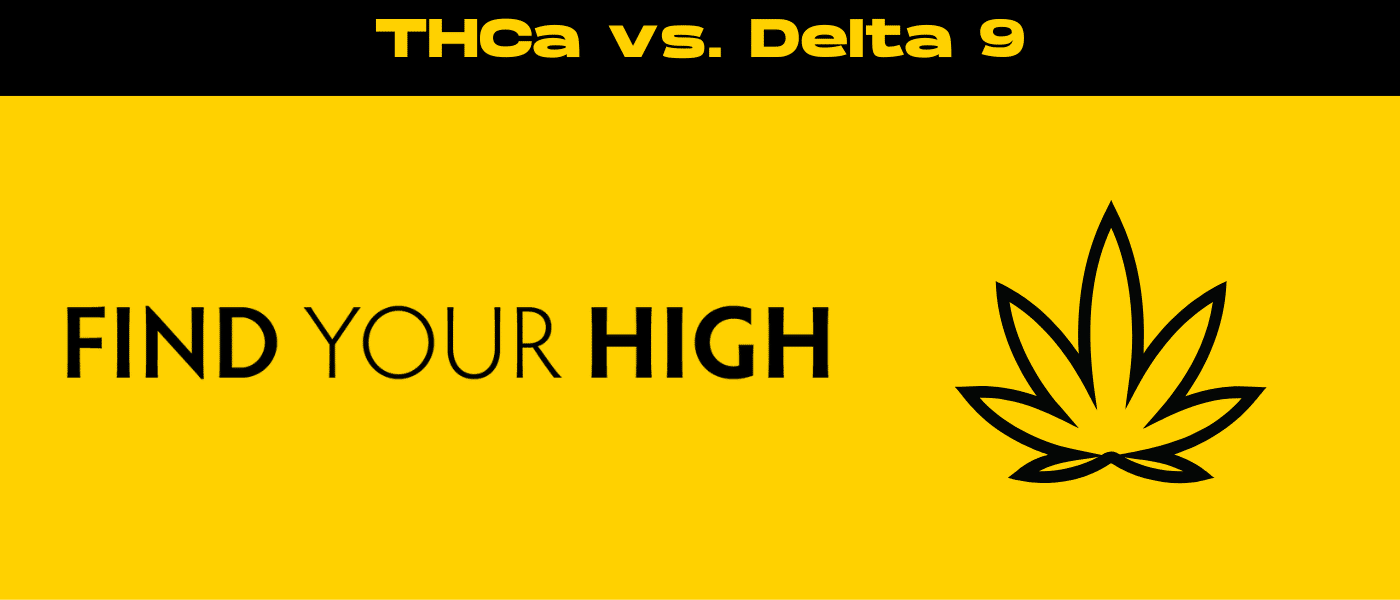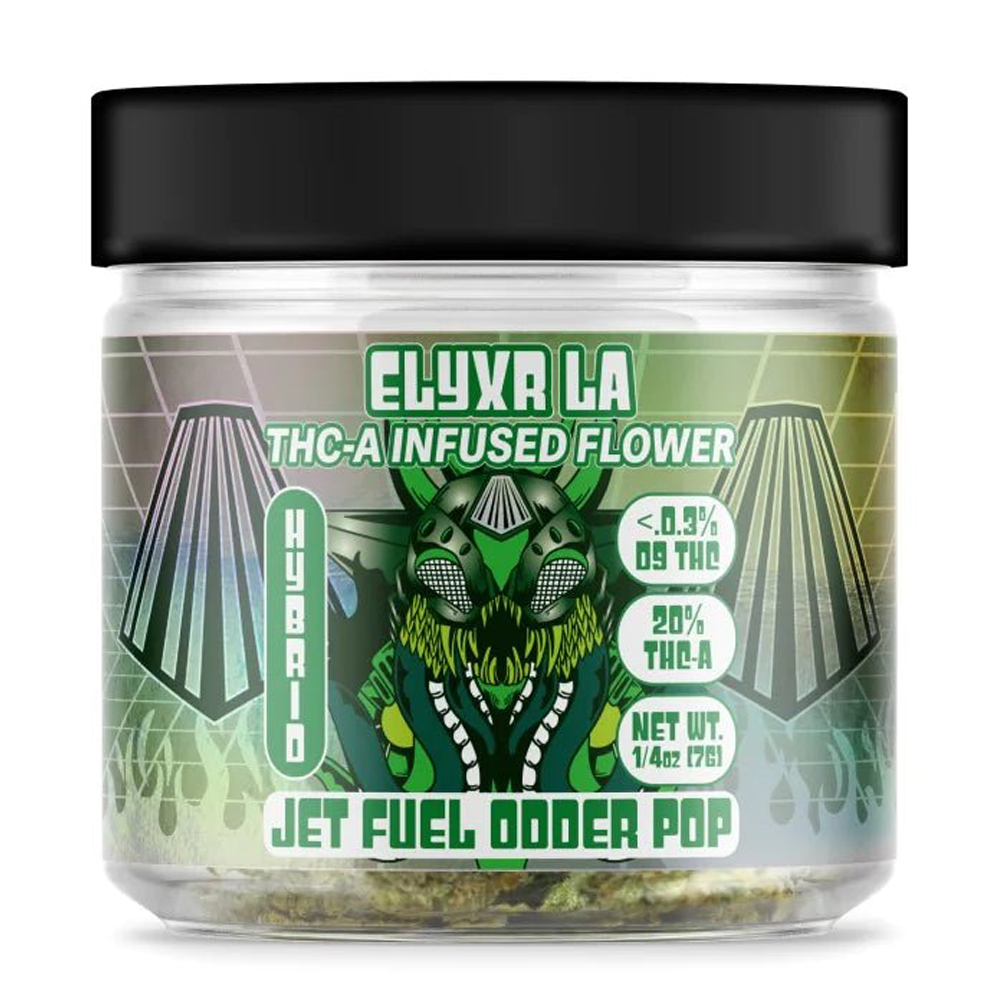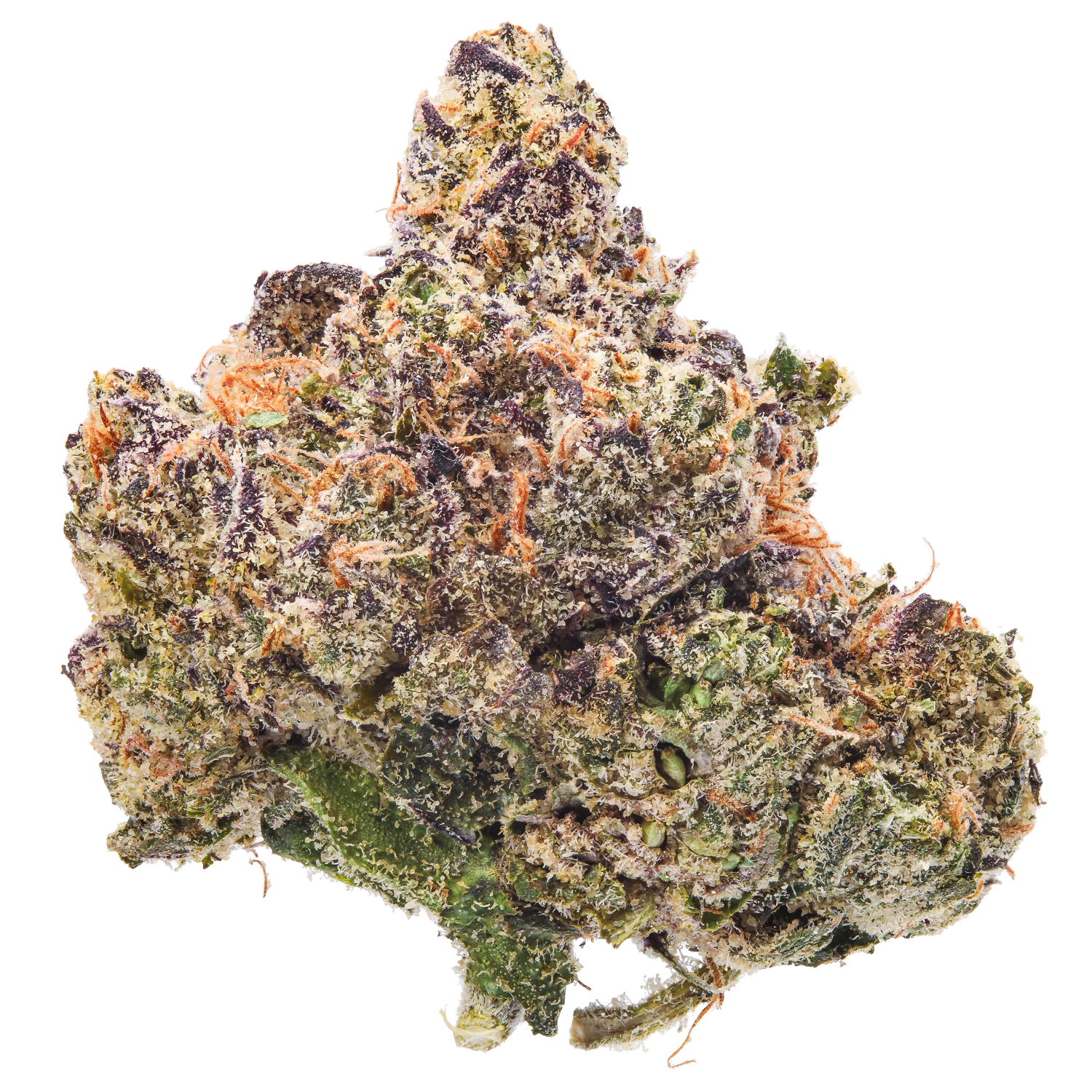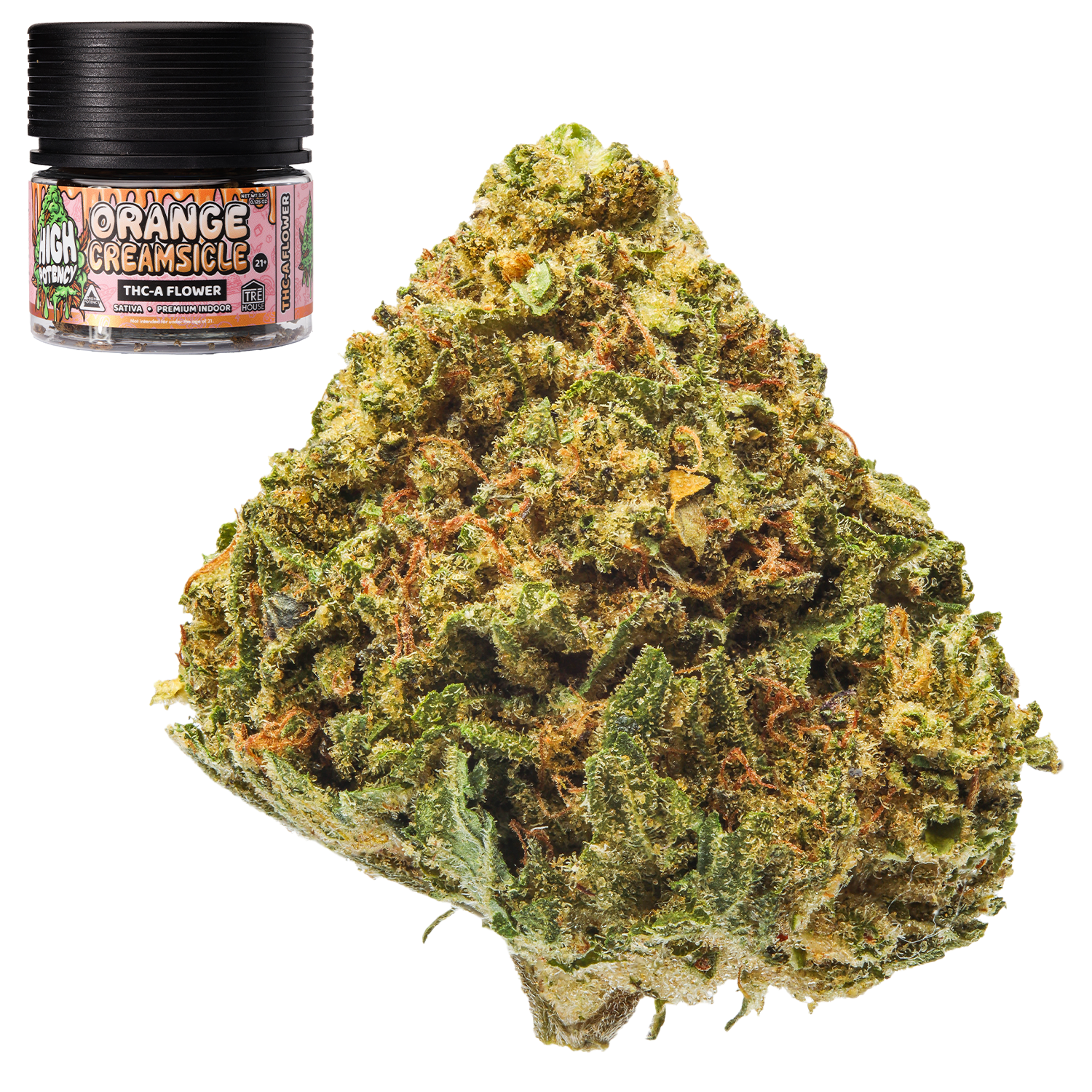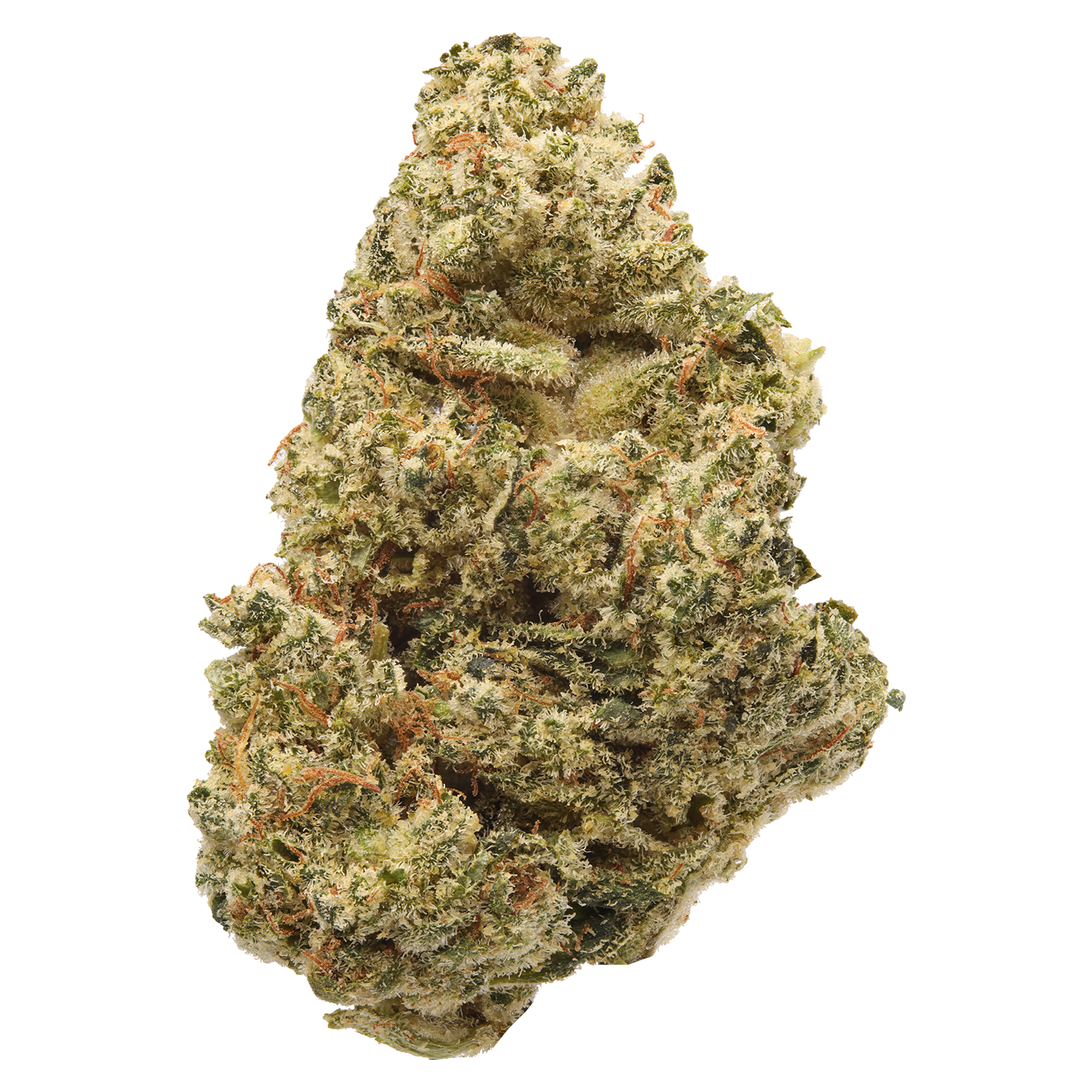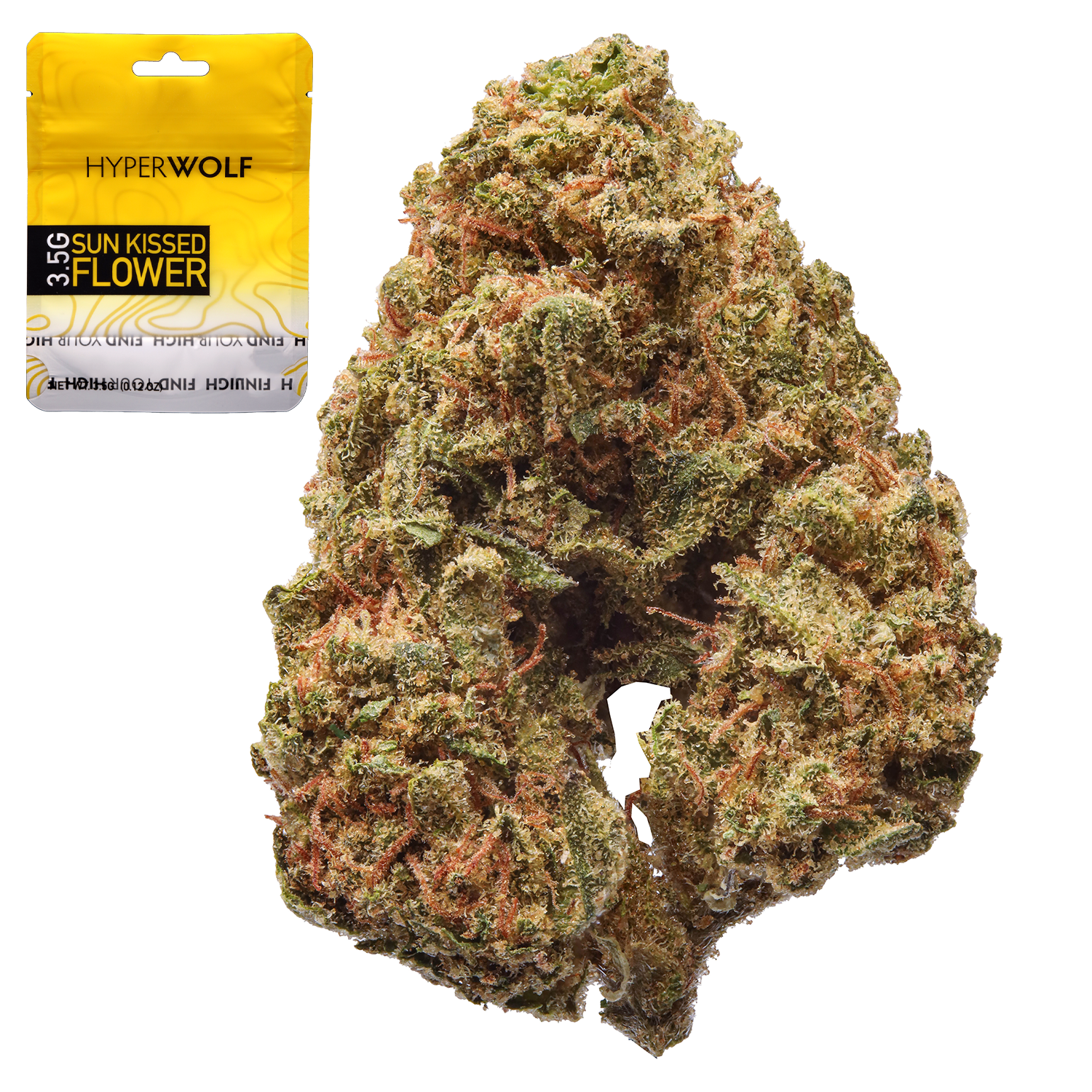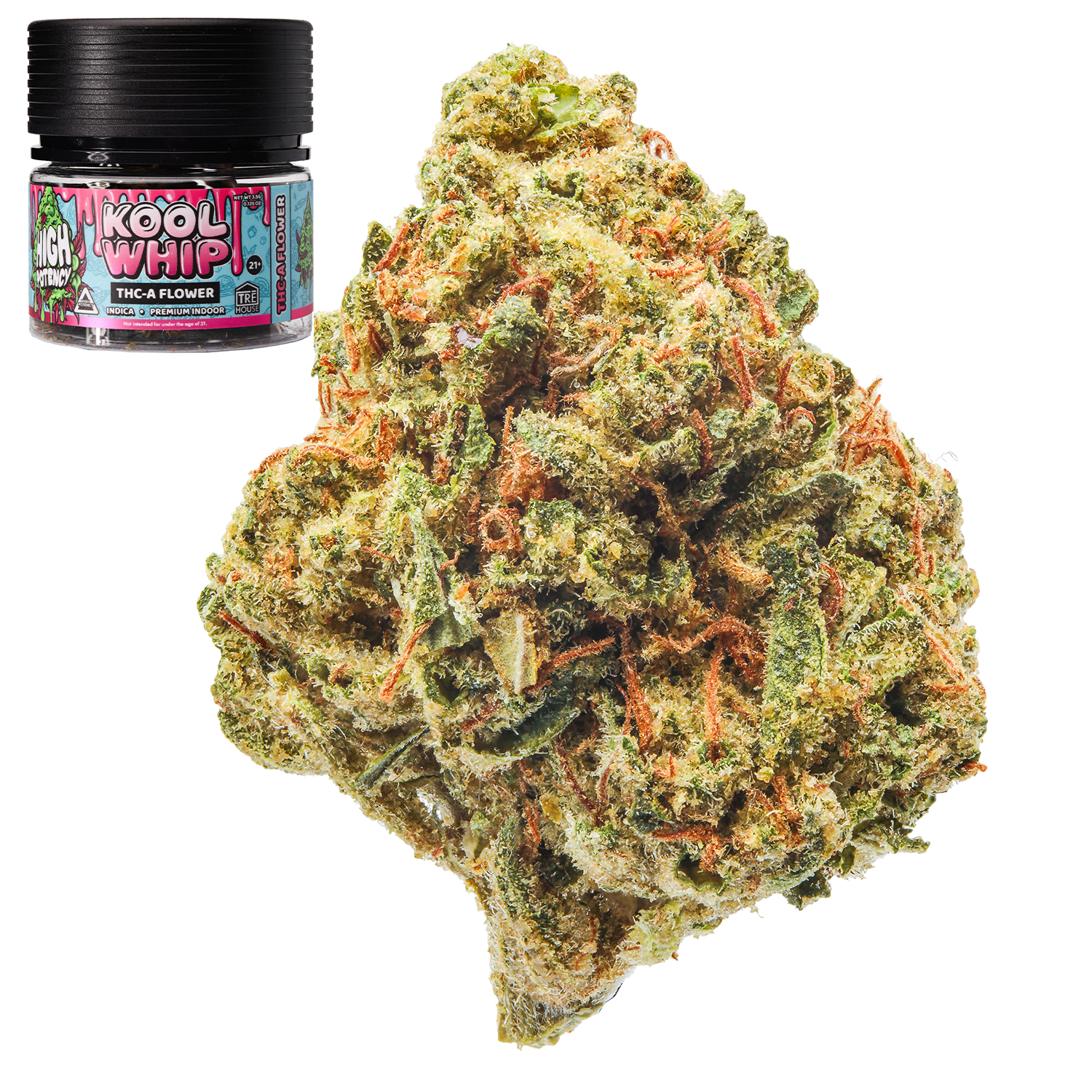Have you ever wondered what the difference is between THCa vs Delta 9? Cannabinoids are a diverse class of chemical compounds that interact with the endocannabinoid system in the human body, playing a crucial role in various physiological processes. These compounds are primarily found in cannabis plants and have generated significant interest due to their potential therapeutic benefits and psychoactive properties.
Among the numerous cannabinoids, tetrahydrocannabinolic acid (THCa) and Delta 9 THC have captured considerable attention. THCa is the non-psychoactive precursor to Delta 9 THC and is abundant in the raw form of cannabis. When exposed to heat through processes such as smoking or cooking, THCa is converted into Delta 9 THC, the compound responsible for the psychoactive effects commonly associated with cannabis.
Understanding the differences between these cannabinoids is vital for both consumers and researchers, as it informs decisions regarding cannabis consumption and its medical applications. This blog post will explore the unique properties of THCa and Delta 9 THC, discuss their distinct physiological effects, and examine their potential health benefits.
By gaining a deeper understanding of these cannabinoids, individuals can better navigate the complex landscape of hemp products available in today’s market.
Understanding Cannabinoids
Cannabinoids are chemical compounds that naturally occur in the cannabis plant. They interact with the body’s endocannabinoid system, which is involved in regulating a variety of physiological processes, including mood, appetite, and pain sensation.
Here’s why cannabinoids are important:
- Diverse Range: The cannabis plant contains over 100 different cannabinoids, each contributing to its wide-ranging effects.
- Therapeutic Potential: Many cannabinoids have been studied for their potential therapeutic benefits, offering hope for new treatments for various medical conditions.
- Primary Component: Cannabinoids are the primary active ingredients in cannabis, influencing both its medicinal and psychoactive properties.
What is THCa?
Tetrahydrocannabinolic acid (THCa) is a prominent cannabinoid found in raw cannabis plants. Unlike its famous counterpart, Delta 9 THC, THCa does not produce psychoactive effects, making it an intriguing area of study for those interested in the therapeutic aspects of cannabis without the “high.”
- Chemical Structure: THCa is the acidic form of THC, and its structure includes a carboxylic acid group, which is lost through a process called decarboxylation when heat is applied.
- Abundance in Raw Cannabis: Before any processing or heating, THCa is the most prevalent form of THC in freshly harvested cannabis.
- Non-Psychoactive Properties: THCa remains non-psychoactive because it does not bind effectively to the CB1 receptors in the brain, which are primarily responsible for the psychoactive effects experienced with cannabis use.
What is Delta 9 THC?
Delta 9 THC, known for its psychoactive properties, is a well-known cannabinoid derived from the decarboxylation of THCa. This transformation is what gives cannabis its famous psychoactive effects.
- Chemical Composition: The structural transformation from THCa to Delta 9 THC involves removing the carboxylic acid group, which allows it to interact more effectively with the brain’s receptors.
- Distinction from THCa: Unlike THCa, Delta 9 THC readily binds to CB1 receptors in the brain, which is why it can produce the sensation of being “high.”
- Psychoactive Effects: Delta 9 THC is the compound primarily responsible for the characteristic euphoria, altered perception, and relaxation feelings associated with cannabis consumption. It’s also been studied for potential therapeutic effects, such as pain relief and appetite stimulation.
The Conversion Process: THCa to Delta 9 THC
The conversion from THCa to Delta 9 THC involves a process called decarboxylation. Essentially, when you apply heat to cannabis—like when you’re lighting up a joint or baking some brownies—THCa loses a carboxyl group, transforming into the psychoactive Delta 9 THC. This conversion is what flips the switch on the psychoactive effects of cannabis, making it enjoyable for recreational users and intriguing for those exploring its medicinal values.
Several factors can influence this conversion, including the temperature and duration of exposure to heat. A slow, low temperature ensures THCa fully transforms without degrading the cannabinoids, giving you the best bang for your buck.
So, whether you’re cooking up a storm or indulging in some fine cannabis smoking, understanding this conversion can help you make the most of your plants.
Effects on the Human Body
Cannabinoids like THCa and Delta 9 THC have fascinating interactions with the human body through the endocannabinoid system. This system plays a key role in maintaining balance in our physiological processes.
When cannabinoids interact with endocannabinoid receptors, they can affect everything from mood and memory to appetite and pain sensation. With THCa, the interaction is mild because it doesn’t bind strongly with CB1 or CB2 receptors, thus avoiding psychoactive effects.
On the other hand, Delta 9 THC has a stronger affinity for CB1 receptors in the brain, leading to both its psychoactive and physical effects. These effects include relaxation, altered sensory perception, and increased appetite for some users.
Medicinal Benefits of THCa
THCa is gaining attention for its potential medicinal properties, highlighting its value beyond psychoactive effects.
One of its standout benefits is its anti-inflammatory properties, which can aid in reducing inflammation-related issues in the body. Research is also exploring THCa’s potential in treating neurodegenerative diseases, offering hope for conditions like Alzheimer’s or Parkinson’s.
What sets THCa apart is its non-psychoactive nature, making it a preferred option for individuals who wish to reap the benefits of cannabis without experiencing the “high.” This opens up possibilities for use in dietary supplements and pharmaceutical products targeted at inflammation and chronic conditions.
Medicinal Benefits of Delta 9 THC
Delta 9 THC is celebrated for its effective medicinal uses, particularly in pain management and appetite stimulation. Many patients suffering from chronic pain turn to Delta 9 THC for its ability to alleviate discomfort, providing a natural alternative to traditional painkillers.
Its appetite-stimulating effects, often known as “the munchies,” are particularly beneficial for individuals who struggle with appetite loss due to conditions like cancer or HIV/AIDS.
Additionally, its psychoactive applications are now being considered for therapeutic practices, assisting in anxiety reduction and the improvement of mood disorders. These benefits underscore Delta 9 THC’s potential as a versatile tool in medical treatments.
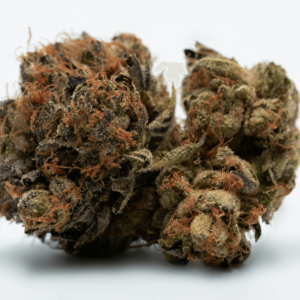
Side Effects and Risks
Even though THCa is often spotlighted for its non-psychoactive qualities and promising health benefits, it’s important to keep in mind that consuming it in large quantities could possibly lead to some unwanted effects.
Users have occasionally reported mild digestive discomfort after ingesting significant amounts of raw cannabis containing THCa. Since the long-term safety profile of THCa is still being researched, caution is recommended for those considering regular usage.
When it comes to Delta 9 THC, the psychoactive component most associated with cannabis, the risks are more pronounced. Regular consumption can lead to impaired cognitive function, short-term memory issues, and even increased anxiety in some individuals.
It also possesses a potential for dependency, making it crucial to exercise moderation. Notably, excessive use can impair motor skills, urging caution when engaging in activities that require full attention, like driving.
Consumption Methods for THCa
When it comes to THCa, one of the most popular consumption methods is juicing raw and freshly harvested cannabis plants. This approach is pretty straightforward: you take fresh cannabis leaves and buds and blend them into a juice. It’s a method that allows you to harness the benefits of THCa without the psychoactive effects. Juicing raw cannabis is praised for its healthful qualities, providing a nutrient-rich drink that some claim boosts energy and supports overall wellbeing.
Another way to enjoy THCa is through wellness products like tinctures and topicals. Tinctures are created by soaking cannabis in alcohol or another solvent, and then consuming a few drops under the tongue or added to food. It’s a flexible method that offers a precise way to control your intake.
On the other hand, topicals, such as creams and balms infused with THCa, are applied directly to the skin. They’re particularly useful for targeting localized pain or inflammation without any psychoactive experience, making THCa accessible in a form that fits smoothly into daily routines.
Cooking with THCa
Cooking with THCa is a great way to explore the culinary possibilities of raw cannabis. Unlike decarboxylated cannabis, which imparts psychoactive effects, using THCa-rich ingredients like fresh leaves and raw buds offers a healthful, clear-headed experience.
To begin, incorporate these raw ingredients into smoothies, salads, or even pesto for a nutritional boost packed with antioxidants and essential nutrients. For best results, gently mix freshly chopped cannabis with your ingredients to preserve its natural components.
The benefits of cooking with raw cannabis are numerous; it provides a way to consume cannabis without experiencing the typical “high,” allowing you to harness its anti-inflammatory and neuroprotective properties safely. Whether you’re crafting a vibrant green smoothie or spicing up a fresh salsa, the unique flavors and health benefits of THCa can integrate seamlessly into your wholesome kitchen repertoire, making it a versatile addition for health-conscious foodies.
Consumption Methods for Delta 9 THC
Delta 9 THC has a variety of consumption methods that cater to both traditional and modern preferences. Smoking THCa flower and vaping are classic choices, offering immediate effects by heating the cannabis to release THC.
While smoking involves directly burning cannabis flowers, vaping provides a smoother experience by heating cannabis oil or flower just enough to release vapor without combustion. This method is often preferred by those who seek an instant high and enjoy the ritual associated with smoking.
For those who prefer a more discreet or prolonged experience, edibles and extracted oils are the way to go. Edibles, ranging from gummies to baked goods, offer a delayed but often more intense high as the THC is metabolized differently. Extracted oils, on the other hand, provide a versatile way to consume THC, as they can be ingested directly or used as an ingredient in cooking.
This array of options ensures that there’s a consumption method for everyone, each delivering the unique effects of Delta 9 THC in its own style.
Cooking with Delta 9 THC
Cooking with Delta 9 THC opens up creative possibilities in the kitchen, especially when you understand the process of decarboxylation. This essential step involves heating cannabis to activate the psychoactive properties of THC, ensuring your dishes provide the desired effects.
Start by gently baking your cannabis at a low temperature to decarb it before incorporating it into a variety of recipes. One popular approach is making cannabis-infused butter or oil, which can then be used in a myriad of dishes. From zesty pasta sauces to decadent brownies, the versatility of infused oils and butters is boundless. Beyond these classics, adventurous cooks are experimenting with THC in gourmet dishes like infused truffle oils or THC-spiced curry.
Whether you’re a seasoned chef or a curious newbie, cooking with Delta 9 THC offers an exciting journey into blending culinary arts with cannabis culture.
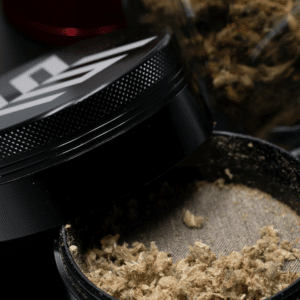
Legal Status: THCa vs Delta 9 THC
The legal landscape under the Controlled Substances Act for THCa and Delta 9 THC varies widely across different regions and continues to evolve.
In many areas, THCa remains largely unregulated, given its non-psychoactive properties. This standing allows for easier access in markets focused on hemp-derived products and supplements.
Meanwhile, Delta 9 THC is subject to stricter regulations due to its psychoactive effects. Some regions, like certain U.S. states and countries such as Canada and Uruguay, have embraced more lenient laws allowing its use medically and recreationally.
The legality of these compounds heavily influences their usage and availability. THCa, being less restricted, is more readily integrated into health-focused products, while Delta 9 THC faces limitations that might deter wide-scale consumer access and necessitate medical prescriptions or adherence to recreational use laws. These legal differences often shape consumer choices and market trends.
Impact on Mental Health
THCa’s Potential in Mental Health Treatment
THCa offers promising avenues for mental health treatment, largely due to its non-psychoactive nature and reported anti-inflammatory properties.
Current research suggests that THCa may play a role in alleviating symptoms of conditions such as anxiety and depression by modulating the endocannabinoid system, promoting a sense of balance and calm without the intoxicating effects typically associated with cannabis. This makes THCa an attractive option for those seeking natural alternatives for mental wellness.
Delta 9 THC and Mental Health Concerns
Delta 9 THC, while popular for recreational use, presents mental health challenges, especially with long-term consumption. Some studies have linked high doses to increased anxiety and paranoia, particularly in individuals predisposed to mental health disorders.
It’s essential for users to approach Delta 9 THC with caution, considering dosage and individual sensitivity. Despite these concerns, Delta 9 THC continues to be explored for its potential benefits in managing mental health conditions, provided it is used responsibly.
Research and Studies on THCa
Overview of Current Studies
Research on THCa is in its early stages, but initial studies indicate its potential as an anti-inflammatory and neuroprotective agent. Recent investigations have explored THCa’s effect on reducing nausea and stimulating appetite, which could be beneficial in treating chronic illnesses.
These findings are paving the way for more comprehensive clinical trials aimed at understanding THCa’s full therapeutic potential and its role in supporting mental health.
Potential Future Applications
The future looks bright for THCa as research expands to investigate its broader applications in medicine. Potential use cases include managing neurodegenerative diseases, such as Parkinson’s and Alzheimer’s, where THCa’s neuroprotective properties may offer relief.
Additionally, emerging studies are examining THCa’s impact on metabolic diseases, given its possible role in regulating inflammation. As research evolves, THCa could become a staple in personalized medicine, offering tailored health benefits without psychoactivity.
The Future of THCa
As interest in THCa grows within the cannabis industry and beyond, the compound is set to influence both the wellness and pharmaceutical industries significantly. Innovative product formulations are emerging, from functional beverages to nutraceutical supplements, which incorporate THCa for its wellness benefits.
The potential legalization and regulation shifts may see THCa becoming a mainstream health ingredient, recognized for its therapeutic potential. In the coming years, we can expect a rise in consumer demand and scientific exploration, positioning THCa as a key player in natural health solutions.
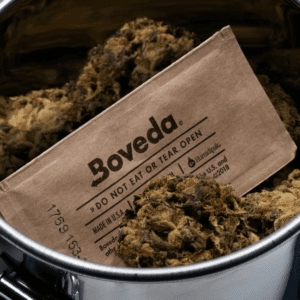
Research and Studies on Delta 9 THC
Overview of Current Studies
Delta 9 THC is well-researched, with studies focusing on its analgesic, anti-nausea, and appetite-stimulating properties. Notable research highlights its efficacy in managing chronic pain and symptoms associated with multiple sclerosis.
However, researchers continue to examine its safety, especially concerning mental health and cognitive function. Despite ongoing concerns, Delta 9 THC remains a prominent focus in cannabis research for both its medicinal benefits and psychoactive effects.
Impacts of Long-Term Use
Long-term use of Delta 9 THC has been associated with potential cognitive impairments, especially when consumption begins in adolescence. Studies show effects on memory and learning, prompting discussions on safe usage guidelines and educating users about the risks associated with prolonged exposure.
Increasingly, the research aims to balance the benefits with these concerns, advocating for responsible use and further investigation to understand Delta 9 THC’s impact on cognitive health over time.
The Future of Delta 9 THC
The market for Delta 9 THC is projected to grow significantly as legalization progresses and societal stigma decreases. New consumption methods are regularly being developed, such as fast-acting edibles and innovative vape technologies, which cater to diverse user preferences.
As regulations evolve, increased research funding and legislative support may continue to reshape how Delta 9 THC is perceived and integrated into daily life, fostering further advancements in its legal acceptance and innovative applications across various sectors.
Comparing Cost and Availability
When it comes to cost and availability, THCa and Delta 9 THC present distinct market dynamics. THCa, due to its non-psychoactive nature, is experiencing broader acceptance and thus faces fewer regulatory hurdles, making it more readily available at potentially lower prices in certain regions. Its integration into wellness products also drives consistent demand, impacting its market cost.
On the other hand, Delta 9 THC, being psychoactive, is more stringently regulated, which affects its availability and often results in higher prices due to compliance costs and limited accessibility. Factors such as cultivation demands, processing expenses, and legal constraints contribute significantly to the cost differences.
As more states and countries consider updating their cannabis laws, these price and availability disparities might evolve, offering consumers more choices and potentially transforming the landscape of cannabis market economics.
FAQs about THCa
Curious about THCa and what it can do for you? You’re not alone. People often wonder if using THCa will get them high, and the answer is no—THCa is non-psychoactive, so you won’t experience the mind-altering effects of traditional THC.
Many users are interested in how THCa might fit into their wellness routines. It’s commonly used for its potential anti-inflammatory and neuroprotective properties, making it a potential natural choice for those dealing with chronic conditions or inflammation.
Another frequent question involves its legal status. Since THCa doesn’t produce psychoactive effects, it’s generally subject to fewer regulations, depending on regional laws. Overall, as research continues, more people are exploring its benefits without the concerns associated with traditional THC.
FAQs about Delta 9 THC
Questions about Delta 9 THC usually revolve around its psychoactive properties and medical uses. It’s important to note that Delta 9 THC is indeed psychoactive and can produce the “high” associated with cannabis use. This leads to questions about dosage and safe use, which can vary greatly among individuals.
In terms of its health benefits, Delta 9 THC is known for its potential to relieve pain, stimulate appetite, and ease nausea. However, users often inquire about its long-term effects on mental health, particularly regarding ongoing studies about cognitive function and mental well-being.
Legal inquiries are common, too, as its status can vary by location, affecting accessibility and use. As legalization efforts continue, understanding these aspects is crucial for anyone considering Delta 9 THC.
THCa vs Delta 9: Conclusion
In wrapping up, it’s clear that THCa and Delta 9 THC possess both distinct differences and intriguing similarities in their roles within the cannabis market.
THCa stands out with its non-psychoactive properties, opening doors for use in wellness products and providing potential health benefits without altering mental states. Its broader acceptance and fewer regulatory hurdles make it accessible and often more affordable, appealing to those seeking natural health alternatives.
In contrast, Delta 9 THC is well-known for its psychoactive effects and therapeutic applications, such as pain relief and appetite stimulation. However, it faces more stringent legal constraints, influencing both its cost and availability.
Similarities emerge in their shared origins within the cannabis plant and ongoing research into their respective health impacts, with both compounds offering unique contributions to medicinal and recreational realms.
Ultimately, the choice between THCa and Delta 9 THC hinges on personal needs and preferences, highlighting the importance of informed consumption. Understanding their characteristics can empower individuals to make choices that align with their health goals while navigating the evolving landscape of cannabis products responsibly. This awareness is crucial as society continues to embrace cannabis-derived solutions and advocates for safe, informed use.
THCa vs Delta 9 THC: Frequently Asked Questions
1. Which is stronger, THCa or Delta-9?
When it comes to potency, Delta 9 THC is generally considered stronger in terms of psychoactive effects. Delta 9 THC is the compound responsible for the “high” associated with cannabis use, offering powerful mind-altering effects. In contrast, THCa is non-psychoactive and doesn’t produce these effects on its own, so from a “strength” perspective regarding intoxication, Delta 9 clearly edges out over THCa.
2. How do you turn THCa into Delta-9?
Converting THCa into Delta 9 THC involves a process called decarboxylation, which can occur naturally or be induced through heat. When cannabis is heated—whether smoked, vaporized, or cooked into an edible—THCa loses a carboxyl group, transforming into Delta 9 THC. This transformation is crucial for unlocking the psychoactive potential of cannabis products typically associated with THC.
3. What is stronger, Delta 8 or THCa?
Delta 8 THC is another psychoactive compound, although it’s often perceived as milder than Delta 9 THC. Since THCa does not have psychoactive effects until converted into Delta 9 THC, it isn’t directly comparable to Delta 8 in terms of strength. Between Delta 8 and THCa, Delta 8 has psychoactive properties and produces a mellower high compared to Delta 9 THC, positioning it as more psychoactively potent than the non-psychoactive THCa.
4. Is THCa flower good?
THCa flower is appreciated for its health and wellness potential without the psychoactive experience of traditional THC. It’s known for anti-inflammatory and neuroprotective properties, making it popular among those seeking therapeutic benefits without the high. For consumers looking to access the benefits of cannabis without psychoactive effects, THCa flower presents an appealing option, providing diverse uses from health supplements to culinary applications.




